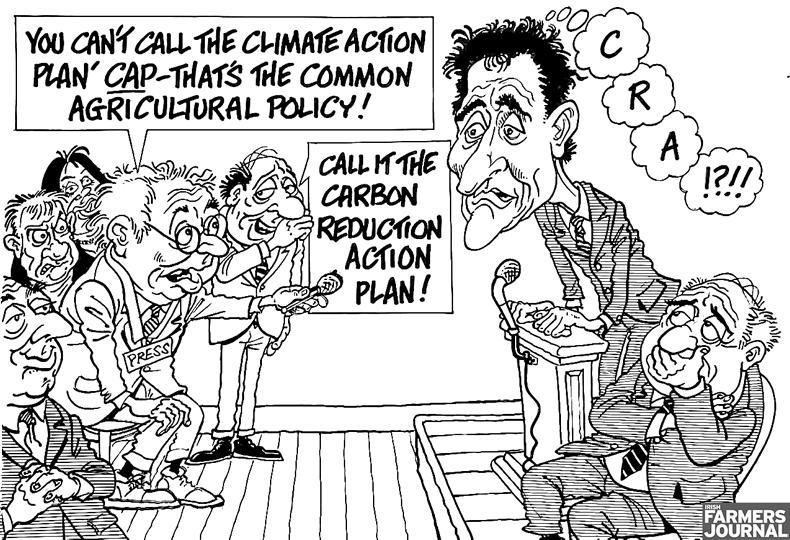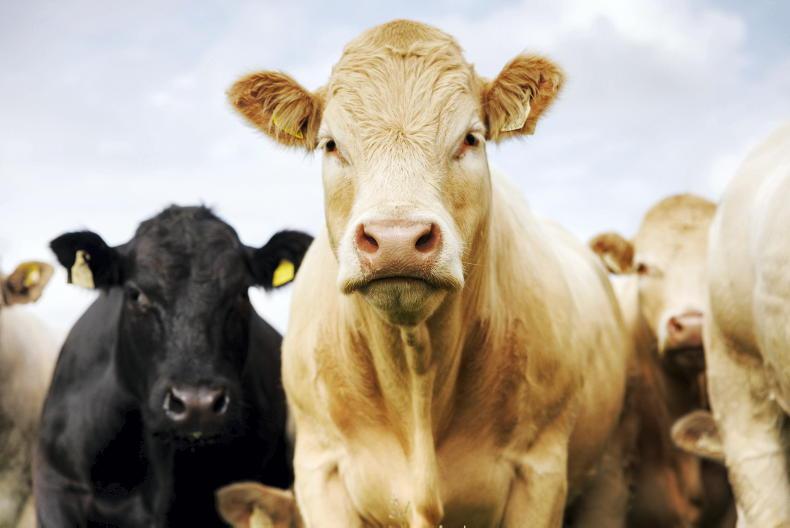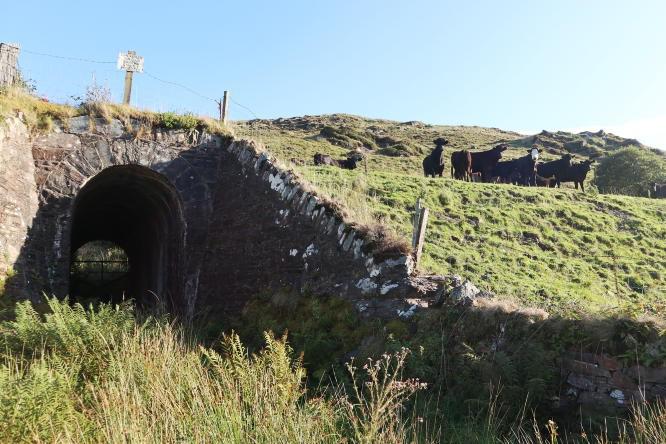As the dust settles on COP26, there are a number of key lessons. At international level, despite recognising the urgent need to reduce emissions, the importance of protecting national interests and the global competitiveness of key export sectors remains the top priority for world leaders.
Unfortunately, one of the most noticeable exceptions to this was the Irish Government. Throughout COP26, we saw little concern from within Government as to the impact of climate mitigation strategies on the global competitiveness of our agri-food exports – worth over €13bn per annum and safeguarding more than 170,000 rural jobs.
The lacklustre defence of Ireland as a sustainable food producer was very different to the position adopted by the Government a few months before when defending Ireland’s interests around Foreign Direct Investment (FDI) and the introduction of a new global corporate tax plan.
Defending Ireland's position
At no point during COP26 did we see any Government minister even attempt to highlight the extent to which production-based emissions accounting heavily distorts Ireland’s emissions profile – reflecting the emissions generated from energy imports and food exports.
Nor did we see any public attempt by Government to position Ireland’s sustainable agri-food system as part of the solution in tackling deforestation and reducing the overall environmental footprint of feeding the world.
In contrast, we saw US agriculture secretary Tom Vilsack totally dismiss any notion that livestock numbers in the US would have to be reduced and positioned US farmers as leaders in addressing climate change.
It is now time for Government to stop trying to dodge policy decisions that their targets require
Meanwhile, as Colm McCarthy reports this week, there was a clear reluctance among world leaders to have an honest conversation with the public on how dealing with the climate threat will require a sacrifice to living standards. In this instance, we saw the same approach being taken by Ireland. Like others, the Government appears to only see unbridled economic opportunities and boundless job creation as we embark on a journey to curb harmful emissions.
The benefits of curbing emissions in making the environment cleaner and healthier are without dispute. But at this point, the immediate and real costs to society are much more evident than promises of future prosperity. All citizens deserve honesty and clarity from the Government in this, particularly low-income and elderly households – in rural and urban areas – who are genuinely concerned about how they will heat their homes or keep a car on the road. The same can be said of businesses facing rising costs and/or income cuts.

\ Jim Cogan
In the case of agriculture, the Government’s strategy appears to be one of creative ambiguity where the intention is to deliberately create confusion while claiming to bring clarity. There are numerous examples in relation to COP26 commitments and within the Climate Action Plan – most noticeably the emission reduction targets for the sector.
Within hours of the 22-30% reduction range being announced, Minister for the Environment Eamon Ryan was insisting that agriculture would have to deliver the 30% target. Meanwhile, Minister for Agriculture Charlie McConalogue is emphasising the extent to which a 22% reduction target is within the reach of the sector.
While the difference between the two may appear small, a 30% target requires the sector to reduce carbon emissions by almost an additional 50% compared to 22%. As a recent KPMG report commissioned by the Irish Farmers Journal showed, the economic consequences of a 30% target translate into a €4bn hit to the rural economy and over 50,000 job losses.
Missed targets
Added to this, warnings from An Taoiseach Micheál Martin that Government departments and associated sectors will have to pay where climate targets are missed raised questions as to future funding of farm schemes. Again we saw Minister McConalogue quickly move to reassure farmers that funding for schemes was protected until 2027, but he failed to clarify what the Taoiseach meant by his comments and where the money would come from within the Department of Agriculture if targets were not met.
We see the same level of confusion around Ireland signing up to a global commitment to reduce methane emissions by 30%. The Taoiseach and Minister McConalogue have reassured farmers that the target for agriculture will remain at 10% as outlined in Food Vision 2030. But again this week, Minister Ryan failed to demonstrate that the Government was united on this position. The consequences of requiring a 30% reduction in methane emissions from agriculture would present an existential threat to the livestock sector.
IFA rally
The farming community, through the IFA rally in Dublin on Sunday, is right to insist that the Government comes forward with a clear and coherent plan for the sector. Setting legally binding targets for a sector which are unclear and in the absence of a policy and financial framework to drive the necessary changes is hugely irresponsible and guaranteed to fail in achieving the objective. Leaving a policy vacuum will have the unintended consequence of driving agriculture emissions in the wrong direction as farmers make individual decisions for their farms.
It is now time for Government to stop trying to dodge the unpalatable policy decisions that their targets require and come forward with policy, properly supported by adjustment funding, to shape Irish farming in the way it says it wants it to function. Farmers cannot be expected to pay for the price of Government inaction.
As the dust settles on COP26, there are a number of key lessons. At international level, despite recognising the urgent need to reduce emissions, the importance of protecting national interests and the global competitiveness of key export sectors remains the top priority for world leaders.
Unfortunately, one of the most noticeable exceptions to this was the Irish Government. Throughout COP26, we saw little concern from within Government as to the impact of climate mitigation strategies on the global competitiveness of our agri-food exports – worth over €13bn per annum and safeguarding more than 170,000 rural jobs.
The lacklustre defence of Ireland as a sustainable food producer was very different to the position adopted by the Government a few months before when defending Ireland’s interests around Foreign Direct Investment (FDI) and the introduction of a new global corporate tax plan.
Defending Ireland's position
At no point during COP26 did we see any Government minister even attempt to highlight the extent to which production-based emissions accounting heavily distorts Ireland’s emissions profile – reflecting the emissions generated from energy imports and food exports.
Nor did we see any public attempt by Government to position Ireland’s sustainable agri-food system as part of the solution in tackling deforestation and reducing the overall environmental footprint of feeding the world.
In contrast, we saw US agriculture secretary Tom Vilsack totally dismiss any notion that livestock numbers in the US would have to be reduced and positioned US farmers as leaders in addressing climate change.
It is now time for Government to stop trying to dodge policy decisions that their targets require
Meanwhile, as Colm McCarthy reports this week, there was a clear reluctance among world leaders to have an honest conversation with the public on how dealing with the climate threat will require a sacrifice to living standards. In this instance, we saw the same approach being taken by Ireland. Like others, the Government appears to only see unbridled economic opportunities and boundless job creation as we embark on a journey to curb harmful emissions.
The benefits of curbing emissions in making the environment cleaner and healthier are without dispute. But at this point, the immediate and real costs to society are much more evident than promises of future prosperity. All citizens deserve honesty and clarity from the Government in this, particularly low-income and elderly households – in rural and urban areas – who are genuinely concerned about how they will heat their homes or keep a car on the road. The same can be said of businesses facing rising costs and/or income cuts.

\ Jim Cogan
In the case of agriculture, the Government’s strategy appears to be one of creative ambiguity where the intention is to deliberately create confusion while claiming to bring clarity. There are numerous examples in relation to COP26 commitments and within the Climate Action Plan – most noticeably the emission reduction targets for the sector.
Within hours of the 22-30% reduction range being announced, Minister for the Environment Eamon Ryan was insisting that agriculture would have to deliver the 30% target. Meanwhile, Minister for Agriculture Charlie McConalogue is emphasising the extent to which a 22% reduction target is within the reach of the sector.
While the difference between the two may appear small, a 30% target requires the sector to reduce carbon emissions by almost an additional 50% compared to 22%. As a recent KPMG report commissioned by the Irish Farmers Journal showed, the economic consequences of a 30% target translate into a €4bn hit to the rural economy and over 50,000 job losses.
Missed targets
Added to this, warnings from An Taoiseach Micheál Martin that Government departments and associated sectors will have to pay where climate targets are missed raised questions as to future funding of farm schemes. Again we saw Minister McConalogue quickly move to reassure farmers that funding for schemes was protected until 2027, but he failed to clarify what the Taoiseach meant by his comments and where the money would come from within the Department of Agriculture if targets were not met.
We see the same level of confusion around Ireland signing up to a global commitment to reduce methane emissions by 30%. The Taoiseach and Minister McConalogue have reassured farmers that the target for agriculture will remain at 10% as outlined in Food Vision 2030. But again this week, Minister Ryan failed to demonstrate that the Government was united on this position. The consequences of requiring a 30% reduction in methane emissions from agriculture would present an existential threat to the livestock sector.
IFA rally
The farming community, through the IFA rally in Dublin on Sunday, is right to insist that the Government comes forward with a clear and coherent plan for the sector. Setting legally binding targets for a sector which are unclear and in the absence of a policy and financial framework to drive the necessary changes is hugely irresponsible and guaranteed to fail in achieving the objective. Leaving a policy vacuum will have the unintended consequence of driving agriculture emissions in the wrong direction as farmers make individual decisions for their farms.
It is now time for Government to stop trying to dodge the unpalatable policy decisions that their targets require and come forward with policy, properly supported by adjustment funding, to shape Irish farming in the way it says it wants it to function. Farmers cannot be expected to pay for the price of Government inaction.










SHARING OPTIONS